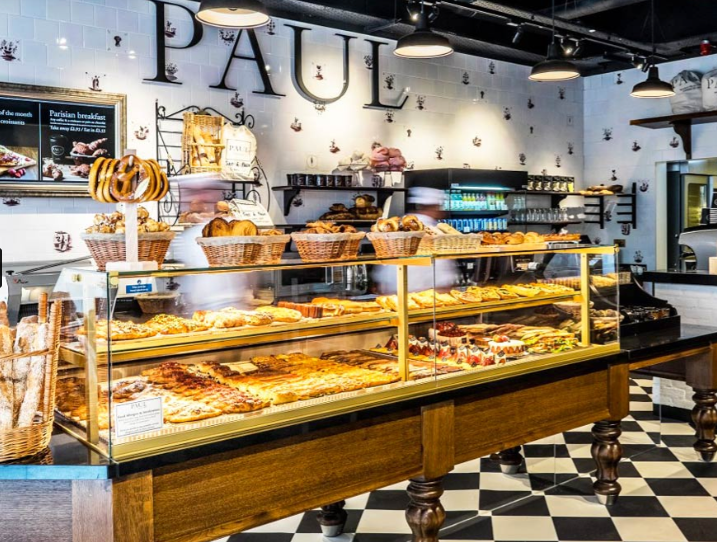Supporting multi-unit managers to develop the mindset, skills and tools necessary to consistently achieve operational excellence.
Multi-Unit Management

Multi-Unit Managers are Key Enablers
They oversee multiple, diverse teams across a large geographic area as the “manager of managers”. Crucial to the success of the business, world-class organisations recognise the challenges they face.

Planning and prioritising
Focusing on the most important goals during competing demands.
Managing performance
Proactively tackling under-performance and missed opportunities.
Developing the team
Building capability and a pipeline to support succession and future growth.
Operational Excellence
Operational excellence is a style of leadership, teamwork and problem-solving that results in continuous improvement.
World-class multi-unit managers embrace the detail necessary to embed a culture of operational excellence – every day.
It requires a disciplined approach to all aspects of managing the business of today while showing the leadership skills to develop the team and business of tomorrow.
Non-negotiables
Clearly defined standards, communicated and constantly reviewed.
Regular reviews
To identify gaps in individual, team and business performance.
Action plan
Proactive, clear and detailed plans, reviewed frequently to reinforce or redirect actions and behaviours.
Operations in 4D
Site visits to review the quality of operations, the customer experience, employee growth and financial performance.
Critical Impact Activities
These are the essential building blocks that ensure that a multi-unit manager remains focused on delivering critical standards and goals – day in, day out.
Analyse
Analyse core business performance metrics including financial and other relevant KPIs.
A multi-unit manager must demonstrate the capability to use all available resources and data to identify:
- Unacceptable trends emerging in core KPIs (eg sales, labour, cost of goods sold) and determine root causes.
- Opportunities to drive profitable growth (eg improved operational standards new or enhanced product ranges, targeted local marketing activities).
- Strengths and areas of development within their team, enhancing skill sets and talent for future succession.
Plan
Create business/team development action plans and prioritise specific, value-adding activities for implementation over the next 90 days.
- Translate analysis into specific, measurable actions which have clear owners and timescales.
- Develop actions to drive performance over the short (30-90 days), mid (90-180 days) and long-term (6-12 months) resulting in profitable growth.
- Schedule time to complete actions, prioritise activities and prepare location visits and other administrative functions of the multi-unit role.
Communicate
Communication of organisational/area goals and results, connecting the dots between these and the actions of individual locations and managers.
- Ensure teams have clarity around their business goals and measures of success.
- Implement and maintain regular communication channels to keep teams up to date with performance.
- Engage and inspire others to achieve stretch goals and embrace organisational changes.
Observe
Conduct critical impact visits to locations that add value and improve people’s performance.
- Plan and conduct critical impact visits which review the operation in four dimensions – customer experience, employee growth, quality of operations and financial performance.
- Support managers to identify strengths and gaps in performance and to seek solutions.
- As appropriate determine if shortfalls are new or recurring (and why).
Develop
Coaching and development of managers, encouraging a culture of continuous learning and improvement.
- Take responsibility for personal development, seizing formal and ad-hoc opportunities to learn and grow.
- Create structured development goals for individuals designed to enhance current capabilities within the team.
- Review how managers are developing their team and building internal capacity to support future talent needs.
Review
Disciplined and consistent review of the operation and performance management of teams.
- Conduct regular reviews with managers regarding all operational activities (including the customer experience, employee growth, quality of operations and financial performance) adjusting action plans and praising progress accordingly.
- Eliminate weaknesses in the operational delivery of the brand, proactively diagnosing the causes of poor performance.
- Address individual poor performance, providing redirecting feedback where necessary, taking tough decisions around the employment of managers and team members.
Who's the Audience?
Developing existing managers
We work with you to diagnose the development needs of your multi-unit managers, creating and implementing tailored solutions for the long-term. We know the “manager of managers” is key to employee matters, and their ongoing growth and development is too important to be left to chance.
Inspiring the next generation
Building a pipeline of potential multi-unit managers is vital for organisational growth and long-term performance. Working with internal HR teams, we will design and deliver a bespoke development programme that prepares existing, high performance/high potential single-site managers for the transition into future multi-unit management roles.
We also develop:
- General/store/restaurant/unit managers and their teams, especially when providing development support for their line managers (the multi-unit manager themselves) as well as a focus on delivering exceptional service and genuine hospitality for customers.
- Operational directors – regional and departmental heads.
- Owner operators/managing directors with direct involvement in the operational delivery of their business.
- Learning and development (L&D) and HR professionals tasked with developing internal support for operators.

Become the Leader of Managers
No programme or solution is ever off the shelf. Our support is tailored to the specific needs of your organisation.

Content solution sessions
These interactive modules are delivered in person or as virtual training sessions to small groups. Examples of the topics included in our solutions are available here.
One-to-one coaching
Conducted in person or virtually, these focus on reviewing the implementation of programme content and, when appropriate, a debrief of their 360 Mastering Multi-Unit Management Feedback assessment. Learn more
“Ops-servations”
Supporting multi-unit managers where it matters the most, on the frontline, as individuals carry out their role.
Success Stories
PAUL UK – sales growth of over 20% for bakery chain
Across the 37 UK sites operated by PAUL, the French bakery/café restaurant chain, some operations managers were experiencing a decline in like-for-like sales and failing to meet their revenue budgets. Find out how MMU helped PAUL address this challenge.

Book your Discovery Call with MMU Today
See how we can help you boost profits and enhance performance
Get started
With two of the world’s most widely used leadership frameworks, the SLII® model and The One Minute Manager, MMU can deliver proven, time-tested models to make everyone a leader and help you reach your goals by accessing the powerful Blanchard content solutions.

MMU can deliver the world-renowned, personal effectiveness and leadership development solutions from the Franklin Covey organisation to individuals and teams of all sizes. Accessing its comprehensive library, MMU curates the best tools, videos and self-assessments that Franklin Covey has to offer.
Frequently Asked Questions
Is the Mastering Multi-Unit Management programme a set number of modules and workshops?
No, the number of workshop sessions, one-to-one coaching and “ops-servations” included in a development programme will vary significantly from business to business, depending on its unique needs. Although a typical programme runs from three to nine months, the number of programme activities and its overall duration is always determined on a client-by-client basis.
The content solution modules organisations can choose from are summarised here. Each can be tailored for every programme, potentially including the world-class leadership content solutions from FranklinCovey, with who MMU is proud to be a channel partner.
I have a mix of existing and potential multi-unit managers who may benefit from this development support. Can they experience the programme at the same time?
Yes, indeed mixing existing and potential multi-unit managers can be a powerful way to share best practice, allowing new managers to learn from the experience of current multi-unit managers while up-skilling both groups with new content and ideas.
How many people can participate in a programme?
A full programme of support would normally involve between four to 12 people. However, MMU has also developed programmes for individual multi-unit managers that are focused on one-to-one coaching sessions and “ops-servations” instead of workshop sessions.
Do you offer refunds for the programme?
Yes, we offer a limited 30-day money back guarantee that starts on the delivery date of the first workshop or one-to-one coaching session rather than the exploratory stage of the programme development. To qualify for a refund, please contact our support team at contactus@masteringmultiunits.com and we will respond within two business days.
What if I have more questions?
We are here to help. Simply contact our support team at contactus@masteringmultiunits.com with any questions and we will respond within two business days.